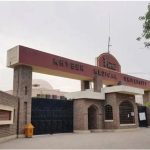In a landmark decision, all examination boards across Pakistan have agreed to implement a standardized schedule for matriculation and intermediate exams starting in 2025. This move aims to streamline academic timelines, align exam results with university admission cycles, and resolve issues that have long plagued higher education admissions, particularly in medical and dental colleges.
According to the revised schedule, matriculation exams will be held in March, while intermediate exams will take place in April. Results will be announced nationwide in June and July, ensuring timely synchronization with the academic calendars of universities. This change, approved during the 180th meeting of the Inter Boards Coordination Commission (IBCC) in Islamabad, is expected to benefit students across the country.
Dr. Ghulam Ali Mallah, Executive Director of the Inter Boards Coordination Commission (IBCC), emphasized that the new timeline addresses multiple concerns, including delays in MDCAT examinations caused by late result announcements. “The revised schedule not only smooths the academic transition but also alleviates the hardships students face due to extreme weather conditions during exams held in May and beyond,” he stated.
The decision was made in consultation with the chairpersons of the 29 examination boards operating in Pakistan, including the Aga Khan University Examination Board (AKU-EB) and Ziauddin University Examination Board, both from the private sector. Punjab was the first province to fully embrace the initiative, announcing specific dates for its 2025 exams.
To further enhance assessment practices, the IBCC highlighted progress on the Model Assessment Framework (MAF), a standardized assessment model designed to modernize testing nationwide. The MAF will be officially launched by Federal Minister Ahsan Iqbal, with additional plans to develop a Digital Question Item Bank that aligns with contemporary educational standards.
In a significant step toward educational inclusivity, the IBCC also approved waivers for registration and examination fees for orphan students, alongside the introduction of a designated column for orphan status in registration forms.
This uniform schedule and accompanying reforms signify a pivotal moment in Pakistan’s education system, promising smoother academic transitions, equitable opportunities, and improved student welfare.







